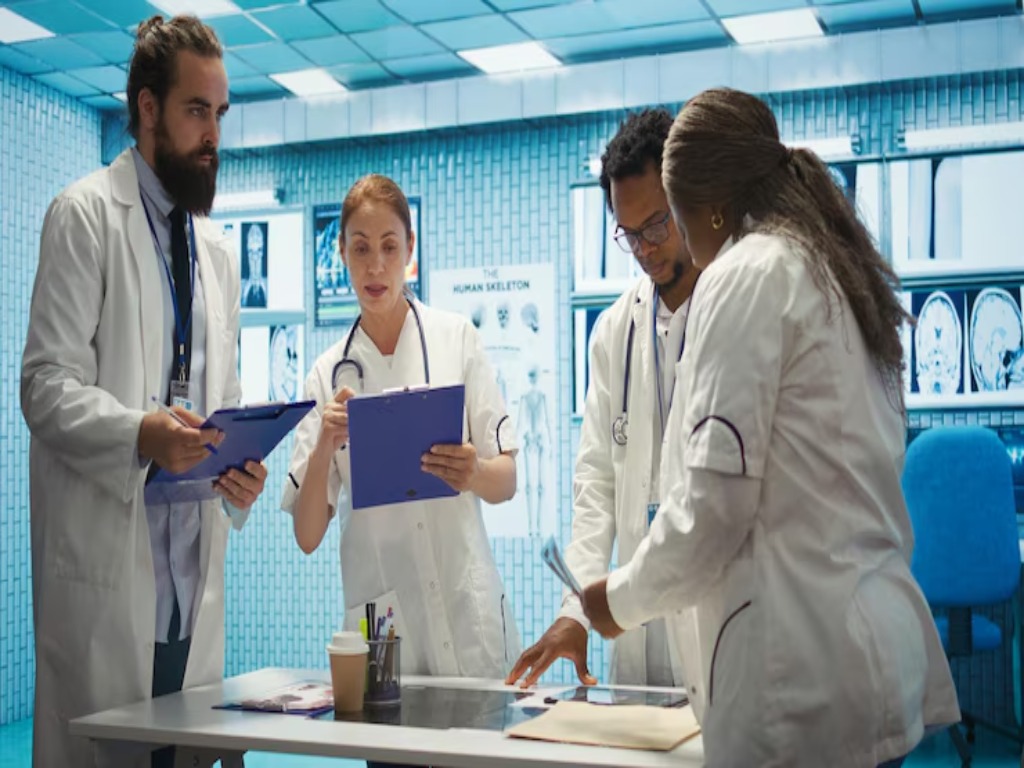

The pharmacy sector is at the forefront of healthcare innovation, with rapid advances in biotechnology, clinical research, and drug manufacturing. At Indore Institute of Pharmacy, the Best pharmacy colleges in indore where the pharmaceutical landscape evolves, academic institutions must reimagine how they educate future professionals. One of the most effective ways to bridge the gap between classroom learning and real-world application is through industry collaboration.
The integration of industrial partnerships into academic programs is not only a strategic advantage but also a necessity. These collaborations provide students with hands-on exposure, contemporary knowledge, and skill development that traditional pedagogy alone cannot offer. This article explores how strategic alliances with pharmaceutical companies and research organizations significantly enhance student outcomes, academic excellence, and professional readiness.
The Pharmacy Institute (IIP), approved by AICTE and PCI, New Delhi, and affiliated to RGPV Bhopal, bridges the gap between academia and industry through strong pharmaceutical partnerships. The curriculum is enhanced with real-world applications via guest lectures from industry experts, industrial internships, and live project opportunities with top pharma companies. IIP organizes Pharma Conclaves, industry panels, and startup incubation fairs to keep students aligned with global trends. Students participate in industrial visits and regulatory workshops, preparing them for high-impact careers. On campus, life is dynamic—with annual events like Pharma Carnival, innovation hackathons, inter-college competitions, and career development bootcamps. The institution also encourages leadership through clubs such as the Entrepreneurship Cell, Cultural Committee, and NSS. Through a perfect blend of technical education and extracurricular engagement, IIP empowers its students with knowledge, confidence, and industry-ready skills.
The pharmaceutical sector is one of the most regulated and research-intensive industries. To thrive, graduates need more than textbook knowledge—they must be fluent in current technologies, compliant with global standards, and capable of contributing to innovations in drug development, clinical trials, and patient safety.
Recognizing this, top educational institutions have embraced industry-academia collaboration as a core component of their curriculum. These partnerships create mutually beneficial ecosystems where students, faculty, and industry professionals co-develop learning experiences, research projects, and innovations that serve both education and enterprise.
Faculty also benefit from corporate engagement. When educators participate in consultancy projects, attend joint training, or visit industrial units, they bring back contemporary insights to the classroom. This ensures that teaching remains aligned with industry expectations.
Some institutions also invite industry experts to co-develop course modules, revise syllabi, or co-supervise PhD students, creating a collaborative academic model.
Another advantage of institutional collaboration with pharma companies is the promotion of innovation and entrepreneurship. With support from incubation cells and startup mentors, students are encouraged to transform academic research into viable products or services.
Whether it’s a new formulation, a diagnostic tool, or an AI-driven medical solution, industry support helps refine prototypes, perform market analysis, and obtain seed funding.
Some successful examples of student-led innovations include:
These outcomes are not just academic exercises—they represent the future of pharma and healthcare.
Industry-Academic Formulation Project
Students participated in a joint formulation project with a local pharmaceutical manufacturing company to develop a pediatric syrup with improved palatability and shelf life. The project ran for six months, culminating in a functional prototype and co-authored publication.
Regulatory Affairs Workshop by Pharma Partner
An international pharma brand conducted a three-day certification workshop on regulatory documentation and submission processes. Students received hands-on training in CTD formats, ICH guidelines, and eCTD software, improving their resumes and giving them an edge in regulatory roles.
Startup Incubation Support for Pharm-Tech Idea
A group of final-year students developed a wearable device to monitor patient compliance for chronic drug regimens. With mentorship from an industry expert and support from the institution’s incubation cell, the team filed for a provisional patent and received seed funding.
The Role of Curriculum Integration
Leading institutions don’t treat industry interaction as a separate feature—they integrate it into the academic fabric. Courses are often designed to include industrial visits, project-based learning, guest faculty sessions, and assessments based on real-world problem solving.
This holistic design ensures that students are constantly immersed in practical contexts, even during theoretical learning.
Faculty Development Through Industry Exposure
Just as students benefit, so too do the faculty. Professors who engage with pharmaceutical partners gain access to advanced training, certification programs, and collaborative research grants. This strengthens their knowledge base and enhances classroom delivery.
Institutions also facilitate faculty sabbaticals or short-term industry residencies, which bring new perspectives into pedagogy.
Enhanced Infrastructure Through Partnerships
Often, collaborations lead to co-funded labs, dedicated research wings, or specialized training centers within the institution. These facilities may be equipped with modern HPLC units, stability chambers, simulation labs, or clinical data management software—reflecting real industry environments.
Such infrastructure not only supports research but also signals institutional credibility to future students and parents.
Impact on Rankings and Reputation
Academic institutions that actively partner with industry are often rated higher by accreditation bodies and ranking agencies. Collaborations demonstrate strong placement performance, research output, and global relevance—all of which influence rankings such as NIRF or NAAC.
For students and parents choosing a pharmaceutical institute , such credentials serve as a powerful indicator of quality.
Looking Ahead: The Future of Industry-Academia Partnership
The future lies in deeper integration of AI, machine learning, and digital health into pharmaceutical education. Institutions already ahead of the curve are collaborating with companies in:
As the pharmaceutical landscape becomes increasingly data-driven and patient-centric, academic institutions must keep evolving. The best way to do that is by strengthening bonds with industry players who are actively shaping the future.
In an era where pharmacy education must evolve beyond traditional models, At Indore Institute of Pharmacy, the b pharma college in indore where industry collaboration is no longer optional—it’s essential. From providing real-world exposure to fueling innovation and research, partnerships between academia and industry elevate the student experience, faculty excellence, and institutional credibility.
Those seeking admission to this institute should look beyond brochures and rankings. The true hallmark of a future-ready institution is its ability to connect learning with industry, research with relevance, and education with employability.